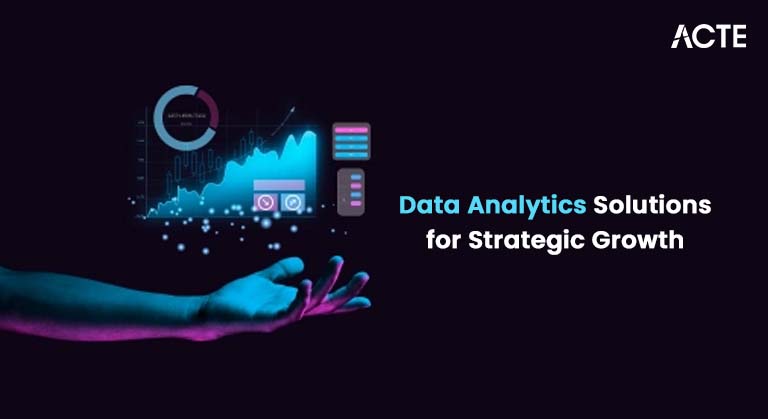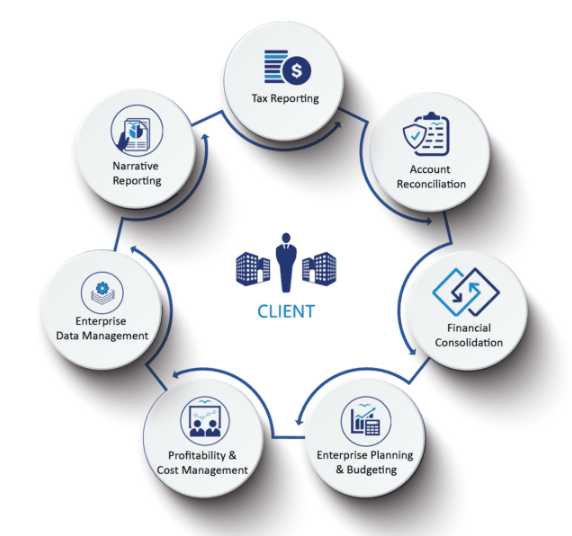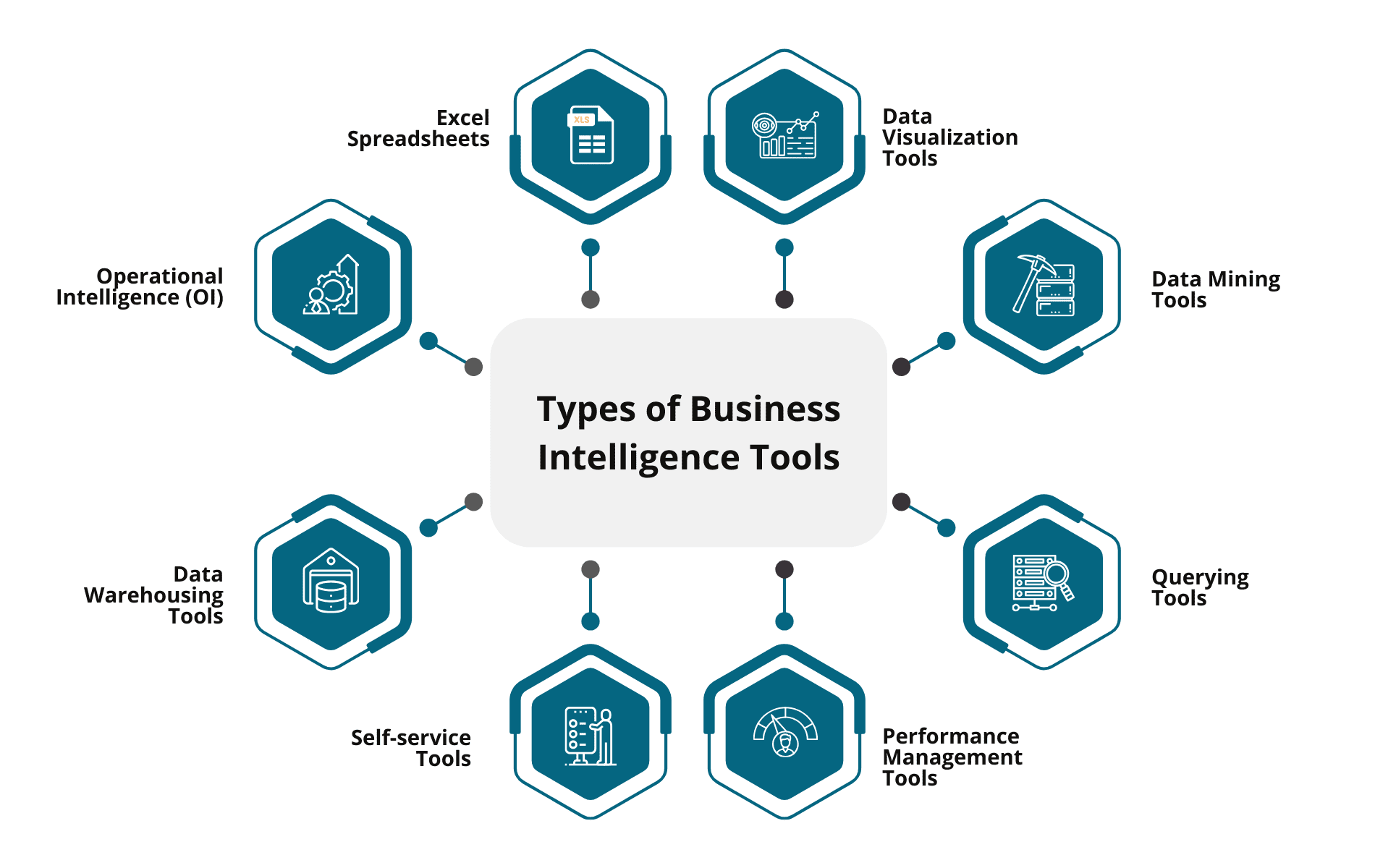
- Introduction to Business Intelligence (BI)
- The Growing Need for Data-Driven Decision Making
- The Evolution of Business Intelligence
- Key Benefits of Business Intelligence
- How Business Intelligence Improves Operational Efficiency
- BI Tools and Technologies Revolutionizing the Industry
- Real-World Examples of BI Impacting Business Success
- The Future of Business Intelligence
- Conclusion
Excited to Achieve Your Business Analyst Certification? View The Business Analyst Online course Offered By ACTE Right Now!
Introduction to Business Intelligence (BI)
In the modern business landscape, data is king. As organizations collect vast amounts of data daily, the ability to turn this data into actionable insights is more important than ever. This is where Business Intelligence (BI) comes into play. Business Intelligence refers to the technologies, strategies, and tools used by companies to analyze data and make informed decisions. BI encompasses everything from data mining, analytics, and reporting to dashboards and visualizations. Essentially, it empowers decision-makers with real-time insights into business performance, trends, and opportunities, making Business Analyst Training essential for effectively utilizing these tools and driving data-driven decisions. As we progress through the digital age, the speed at which data is generated and the complexity of analyzing that data continue to grow. Hence, the role of BI has become more critical, enabling organizations to stay competitive, adapt to market changes, and optimize their operations.
The Growing Need for Data-Driven Decision Making
With the explosion of data from various sources whether it’s social media, IoT devices, transactional systems, or customer interactions the demand for intelligent decision-making is at an all-time high. Businesses are no longer relying solely on intuition or past experiences to make decisions; they are turning to data-driven insights to guide their strategies. In today’s fast-paced business environment, making decisions based on gut feelings or outdated information can lead to missed opportunities, inefficiencies, and competitive disadvantages. As a result, data-driven decision-making has become essential. By utilizing Business Intelligence tools, companies can make decisions that are informed, timely, and backed by solid data. Key drivers for the increasing need for data-driven decision-making include:
- Increased competition: Businesses must make smarter decisions to stay ahead of the competition.
- Globalization: Expanding markets and digital transformations require real-time insights into various business aspects.
- Customer expectations: Consumers expect personalized experiences and services, which can only be achieved through the analysis of data.
As businesses continue to navigate uncertainty, changing market demands, and evolving customer behaviors, the importance of Business Intelligence in helping them make data-backed decisions is paramount.

The Evolution of Business Intelligence
Business Intelligence is not a new concept. However, its evolution over the years has been significant. Early BI systems were primarily used for basic reporting and analysis, often requiring technical expertise to generate and interpret the data. In the past decade, the emergence of big data, cloud computing, and artificial intelligence (AI) has revolutionized BI. Modern BI tools are now capable of processing larger volumes of data, from structured to unstructured data, in real-time, and providing advanced analytics like predictive analytics, machine learning, and natural language processing (NLP).
- Traditional BI (Pre-2000s): Focused on basic reporting and querying.
- Self-Service BI (2000s): Empowered business users without technical expertise to access and analyze data.
- Advanced Analytics (2010s): Introduced predictive analytics, AI, and machine learning to gain deeper insights and forecast future trends.
- Cloud-Based BI (2020s): Cloud BI tools made analytics more accessible, scalable, and cost-effective, allowing real-time collaboration and analysis.
Key Benefits of Business Intelligence
- Improved Decision Making With accurate, real-time data, organizations can make more informed decisions. BI tools provide insights into various business operations whether financial performance, marketing effectiveness, or supply chain status ensuring that decisions are based on facts, not assumptions.
- Increased Operational Efficiency BI tools help identify inefficiencies within an organization. By analyzing operational data, companies can streamline processes, reduce waste, and optimize resource allocation.
- Competitive Advantage Access to timely insights enables businesses to stay ahead of competitors. By analyzing market trends, customer behaviors, and emerging opportunities, companies can make proactive moves before competitors do, making Business Analyst Training crucial for effectively interpreting and acting on these insights.
- Cost Reduction By uncovering areas where resources are being underutilized or misallocated, BI tools can help businesses reduce unnecessary expenditures and improve profitability.
- Enhanced Customer Insights BI enables businesses to understand customer behavior better. By analyzing data from various customer touchpoints, companies can tailor their products, services, and marketing strategies to meet the needs and preferences of their target audience.
- Data Consolidation BI platforms consolidate data from various sources, providing a comprehensive view of the organization. This unified approach reduces silos and enables organizations to make decisions based on an integrated view of the business.
- Tableau Tableau is one of the most widely used data visualization tools. It helps businesses transform complex data into interactive, easy-to-understand visualizations and dashboards.
- Power BI Microsoft’s Power BI is a powerful suite of business analytics tools that allows businesses to connect to various data sources, visualize the data, and share insights across the organization.
- Qlik Sense Qlik Sense offers powerful data exploration and discovery features. It allows users to ask questions of their data and get answers with minimal technical knowledge.
- Looker Looker provides an advanced Business Intelligence and data exploration platform that integrates with cloud databases and gives users the ability to create custom dashboards, reports, and interactive data visualizations.
- SAP BusinessObjects SAP BusinessObjects is an enterprise-level BI solution that allows businesses to access, analyze, and share critical business data. It is ideal for large organizations with complex BI needs.
- SAS Business Intelligence SAS BI solutions offer a broad range of analytics, reporting, and data management capabilities, catering to companies with complex data analytics requirements.
Excited to Obtaining Your Business Analyst Certificate? View The Business Analyst Training Offered By ACTE Right Now!
How Business Intelligence Improves Operational Efficiency
Business Intelligence (BI) is a powerful tool in improving an organization’s operational efficiency. By automating routine processes like data collection, reporting, and analysis, BI reduces the manual workload for employees and ensures that data is processed and analyzed in real-time, enabling faster decision-making. Additionally, BI tools help identify bottlenecks and inefficiencies in operational workflows, providing businesses with insights that allow for corrective actions to streamline operations and enhance productivity. In industries such as manufacturing and logistics, BI, when combined with Internet of things data, can predict equipment failures before they occur, facilitating scheduled maintenance and minimizing downtime. BI also plays a crucial role in inventory management by tracking inventory levels, sales trends, and demand forecasting, enabling businesses to optimize their stock and reduce overstocking or stockouts. Furthermore, BI promotes enhanced collaboration by enabling real-time sharing of data across departments, ensuring that all teams work with the same, up-to-date information, which improves communication and decision-making across the organization.
Interested in Pursuing Business Intelligence Master’s Program? Enroll For Business Intelligence Master Course Today!
BI Tools and Technologies Revolutionizing the Industry
Business Intelligence tools have become indispensable for modern organizations. Some of the leading BI tools and technologies that are revolutionizing the industry include:

Real-World Examples of BI Impacting Business Success
Case Study 1: Retail Giant Optimizing Inventory
A large retail chain used BI to track inventory levels and analyze customer buying patterns. By forecasting demand and optimizing inventory distribution, the company reduced stockouts by 30% and improved product availability, resulting in higher sales.Case Study 2: Healthcare Provider Enhancing Patient Care
A healthcare provider integrated BI to analyze patient data, treatment outcomes, and resource utilization. With this information, the provider was able to reduce wait times for patients, improve patient care, and optimize staffing, leading to better outcomes and cost savings.
Case Study 3: Financial Institution Improving Fraud Detection
A financial institution leveraged Power BI to analyze transactional data in real-time. This helped identify patterns indicative of fraudulent activities, enabling quicker detection and mitigation of fraud, thereby saving millions of dollars.
Getting Ready for a Business Analyst Job Interview? Check Out Our Blog on Business Analyst Interview Questions & Answer
The Future of Business Intelligence
The future of Business Intelligence (BI) looks promising as businesses continue to generate more data, driving an increasing demand for BI solutions. Key trends shaping the future of BI include the integration of AI and machine learning, which will provide even deeper insights, helping businesses forecast trends, automate decision-making, and improve data accuracy. Additionally, Natural Language Processing (NLP) capabilities will make BI more accessible by allowing business users to query data using natural language, eliminating the need for technical expertise.BI encompasses everything from data mining, analytics, and reporting to dashboards and visualizations. Essentially, it empowers decision-makers with real-time insights into business performance, trends, and opportunities, highlighting the importance of Business Analyst Training to leverage these insights effectively. Furthermore, cloud-based BI solutions are expected to dominate, offering businesses scalability, cost-efficiency, and flexibility in managing their BI needs. As these trends continue to evolve, BI will become increasingly vital in driving data-driven decisions and enhancing operational efficiency.
Conclusion
In an era where data is constantly being generated and analyzed, Business Intelligence is more important than ever. BI tools enable organizations to make smarter, more informed decisions that drive growth, efficiency, and innovation. From improving operational efficiency to gaining deeper insights into customer behavior, BI is crucial for gaining a competitive edge in today’s fast-paced business world. As data continues to grow in volume and complexity, embracing BI will empower businesses to not only survive but thrive in an increasingly data-driven world.


